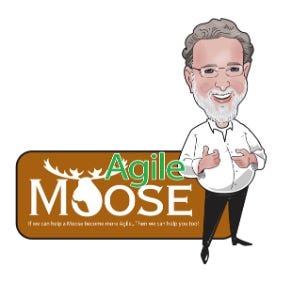Blended Agile Roles are…
Fine, Expected, Needed, Normal, and Healthy
I used to believe and fight the battle of—
A Project Manager can’t also be a Scrum Master
A Scrum Master can’t also be a Product Owner
A Product Owner can’t also be a Project Manager
A Functional Manager can’t be a Scrum Master and/or a Product Owner
An RTE can’t be a Product Owner
A BA can’t also be a Product Owner
A full-time developer can’t also be a Scrum Master
Etc., you get the point…
Within agile contexts. I did it for decades—patiently trying to explain the need for the various roles, the separation of responsibilities, and the need to avoid overburdening individuals.
For example, explaining what a Scrum Master does and how it should be independent from the role of Product Owner. I would tell organizational leaders how they needed to invest (heavily) in these roles if they wanted to “be Agile.”
And, while there was solid experience behind my recommendations, I’ve come to realize that…
A Change of Mind
Now I believe I’ve changed my mind. And I probably should have realized this years ago.
The roles don’t matter. Whether they’re individual or combined, they don’t matter. Extending that notion, job descriptions and titles don’t matter. Org charts don’t matter.
Well then, what matters?
Skills—
Applied to value delivery and realization—
Period!
Sure, I can have individuals operating within each role. But I can also have one individual who is Scrum Master, Project Manager, and Product Owner for a team if they have—
The time to balance across the roles
An understanding of the unique skills required within each role
Have those skills
Have the good judgment and skills to effectively balance across all the roles.
We need to stop harping about ALL agile roles. Sure, in the beginning, it was helpful to declare roles for some of the frameworks. But the roles were largely misunderstood by the practitioners and the organizations alike.
They became constraints to support the artificial boundaries of the method creators. But at this point, they are essentially just an argument point for the purists.
To prove that point, here’s a very recent example by The Agile Viking entitled—Product Owners Are Not Project Managers.
Wrapping Up
I’m not arguing against the common agile roles. What I’m arguing for is common sense and a focus on skills over roles.
Why?
Because, in the end, that’s all that really matters. To maintain our value proposition in today’s chaotic and disruptive environments, we better accelerate our skills acquisition—not by training and certifications alone but by continuously gaining real-world experience (CHOPS).
Stay agile, my friends,
Bob.
BTW: This article is a direct follow-up to The Resurgence of the Agile Project Manager
Whatever your role or experience, life in the agile space can be challenging today. Having someone to serve as your coach, as a sounding board, a truthteller, and a trusted partner on tap to leverage during those tricky bits can be helpful. That’s precisely where Agile Moose can help you.
We’re not just an Agile Coach, but a business domain expert, a personal advisor, an organizational design and development consultant, and a leadership coach and partner.
The moose brings over 35 years of technical and product leadership experience across a broad range of contexts. If you’re stuck and know it, reach out, as I can help.




I agree for most roles :)
The problem I have seen is when a person doesn’t have the time or skills to do what is must-haves for the roles, so they fight an eternal fight to keep up.
I don’t agree when it comes to people managers. That always has a power dimension to it no matter how flat the hierarchy is, and that needs to be taken into consideration
I personally have been a "developer/coach" and, most egregiously, a "manager/product owner/scrum master/developer". 😀
It's about the people, not the damned rules! I wrote about over a decade ago: https://practicalagility.blogspot.com/2012/04/pragmatic-agile-remember-first-value.html